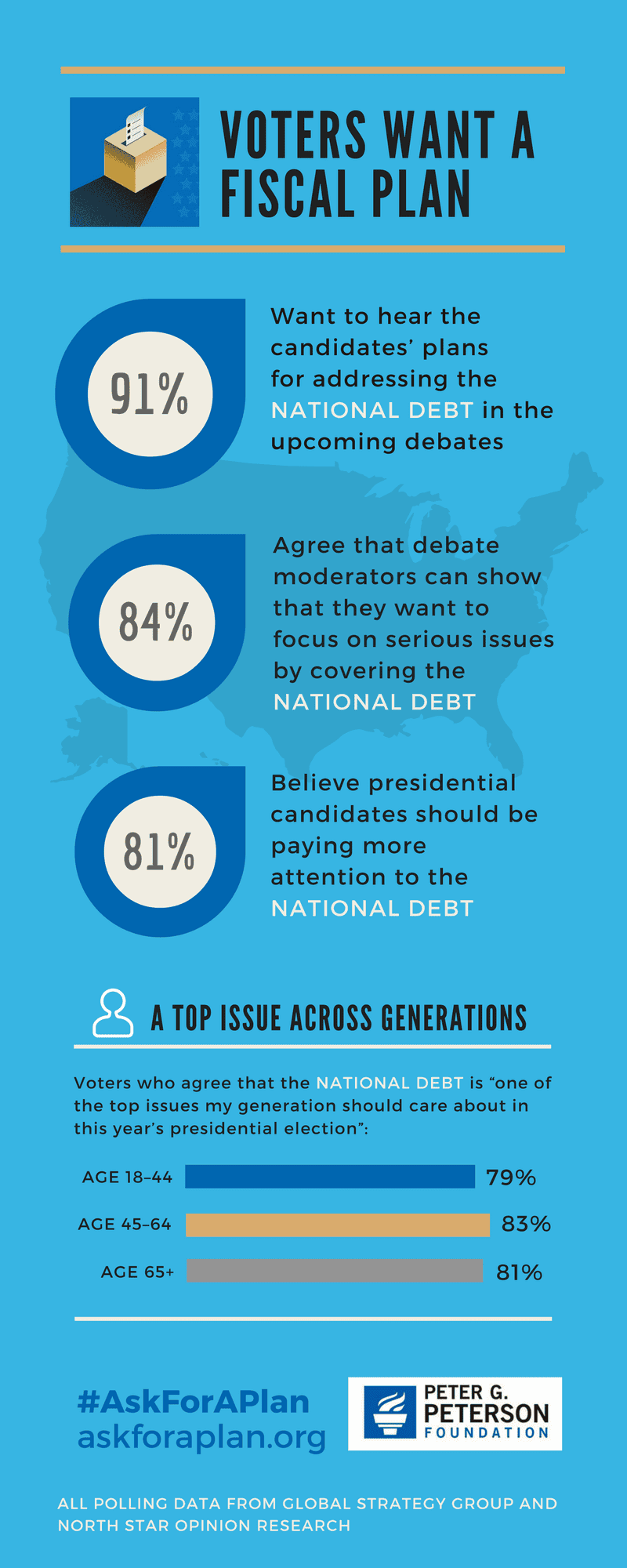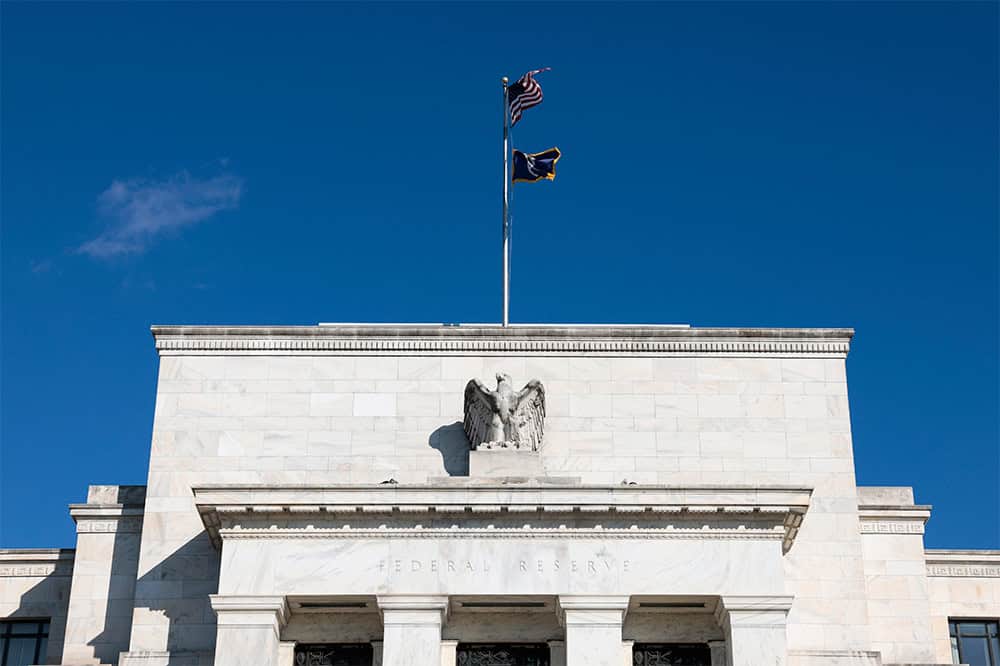Voters: National Debt Needs to Be Part of the Debates
Last Updated September 16, 2016

Though the national debt hasn’t been a focal point of the election conversation thus far, American voters want that to change – and they see the debates as a perfect opportunity. New polling shows that voters want Hillary Clinton and Donald Trump to address the national debt in the upcoming debates.
Roughly nine in ten of the voters polled agree the national debt should be a topic in the debates, with clear consensus among Democrats (89%), Independents (91%), and Republicans (95%). Over four-fifths of the respondents also agree that debate moderators can show that they want to focus on serious issues by covering the debt.
The poll, which was conducted Global Strategy Group and North Star Opinion Research, also found that 81% of respondents (77% of Democrats, 87% of Republicans, and 81% of Independents) believe that the presidential candidates should be paying more attention to the national debt in general. Furthermore, a clear majority (81%) agree the debt is one of the top issues their generation should care about in this year’s presidential election.
The debates will be held:
- Monday, September 26, at Hofstra University, from 9:00 pm to 10:30 pm ET. Lester Holt (anchor, NBC Nightly News) will moderate.
- Sunday, October 9, at Washington University in St. Louis, from 9:00 pm to 10:30 pm ET. Martha Raddatz (chief global affairs correspondent and co-anchor of This Week, ABC) and Anderson Cooper (anchor, CNN) will moderate.
- Wednesday, October 19, at University of Nevada, Las Vegas, from 9:00 pm to 10:30 pm ET. Chris Wallace (anchor, Fox News Sunday) will moderate.
Voters can let the candidates know that they want to hear about the national debt in this year’s debate by signing up for our Thunderclap campaign before the first debate on September 26, 2016.
Image credit: Getty Images/iStockphoto
Further Reading
Growing National Debt Sets Off Alarm Bells for U.S. Business Leaders
Debt rising unsustainably threatens the country’s economic future, and a number of business leaders have signaled their concern.
What Is R Versus G and Why Does It Matter for the National Debt?
The combination of higher debt levels and elevated interest rates have increased the cost of federal borrowing, prompting economists to consider the sustainability of our fiscal trajectory.
High Interest Rates Left Their Mark on the Budget
When rates increase, borrowing costs rise; unfortunately, for the fiscal bottom line, that dynamic has been playing out over the past few years.



